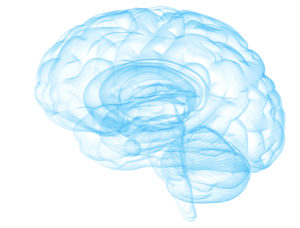
Smoking and diabetes could increase the risk of abnormal calcium buildup in the brain, a new Dutch study suggests.
The study included nearly 2,000 people, average age 78, who visited a memory clinic in the Netherlands. Brain CT scans showed more than 19 percent of them had abnormal calcium buildups (calcifications) in the brain’s hippocampus. That part of the brain plays an important role in short- and long-term memory.
Older age, diabetes and smoking were associated with an increased risk of calcifications in the hippocampus, according to the study. It was published online in the journal Radiology.
Our Take
As doctors, we are learning more and more about how diabetes, heart disease, obesity and dementia are all tied together.
We know that Alzheimer’s disease is associated with certain acquired risk factors—especially when they start in midlife. The greatest risk factors include smoking, obesity, high cholesterol, type 2 diabetes and high blood pressure.
What’s the bottom line? Midlife is the time to consider life goals and make important choices. Meet with your health care provider to put together a plan for addressing your health issues. Simple changes to exercise habits and diet can help to lower blood pressure and blood sugar levels—putting you on track for better brain function.
As doctors, we are learning more and more about how diabetes, heart disease, obesity and dementia are all tied together.
Alzheimer’s disease, the most common type of dementia, is associated with shrinking of the hippocampus, the researchers noted.
But the researchers added that there was no link between the presence and severity of hippocampal calcifications and cognitive function, which they called “a surprising finding.”
“The hippocampus is made up of different layers, and it is possible that the calcifications did not damage the hippocampal structure that is important for memory storage,” study lead author Dr. Esther J.M. de Brouwer said in a journal news release. “Another explanation could be the selection of our study participants, who all came from a memory clinic.”
And while the study was not designed to conclusively determine if smoking and diabetes increase the risk of calcifications in the hippocampus, these findings strongly suggest a link.
“We know that calcifications in the hippocampus are common, especially with increasing age,” said de Brouwer, a geriatrician at University Medical Center in Utrecht. “However, we did not know if calcifications in the hippocampus related to cognitive function.
“We do think that smoking and diabetes are risk factors,” de Brouwer added. “In a recent histopathology study, hippocampal calcifications were found to be a manifestation of vascular disease. It is well-known that smoking and diabetes are risk factors for cardiovascular disease. It is, therefore, likely that smoking and diabetes are risk factors for hippocampal calcifications.”
The researchers plan further studies to learn more about possible links between these calcifications and mental decline.
 /a>
/a>
 /a>
/a>
 /a>
/a>